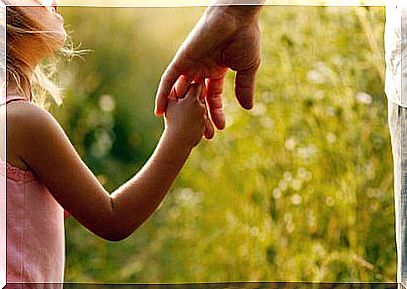Raising Emotionally Healthy Children

To teach is to communicate, educate, guide, show and teach our children what we consider important for life. Through this type of education , we present our values, ideas, expectations and habits as well as our way of life and our view of life. Parents always want to give the best to their children, but we must also know how to pass on these lessons and this guidance.

Command or share?
There are many ways to educate, and one of them is to use authority, burden, punishment, and obedience. Through this form of education, we “train” our children through fear and authority. In most cases, children obey, without learning or thinking, just to avoid the negative consequences of doing “wrong”.
However, there is another way of educating and educating that involves respecting and supporting a child’s development. This way emphasizes teaching the reason for things, and the parents follow the children through the process. Children can learn through experience, by reaching agreements and negotiating with their parents, which makes them more independent; they are held accountable for their small decisions and know the consequences.
Rules and limits
Respecting the growth and maturity of our children does not mean that they decide on their own education. It is important to remember that parents are always the engine and guide for the education of their children, and therefore it is the parents who create the educational path they want for them.
Therefore, it is important to clearly articulate the rules that define the limits of what we teach because it is clear that not everything is suitable for the way we live; something that needs to be clarified for the little ones.
To teach respect
It is important to be clear about what we want to teach, and that is why it is so important to know our values. In this way , the education becomes a transfer of values through rules and habits in daily life, which makes it clear what we want and do not want to pass on.
Teaching values is natural and spontaneous. They are transmitted from generation to generation through observation, imitation and above all non-verbal communication.
This means that in addition to teaching what we want, do not want and what we expect from our children , we also inform them about our attitudes, feelings, what we accept and do not approve and the resulting consequences.

Raising confident children
Children grow up to be emotionally healthy when they have learned to live life based on their own experiences and with the support and protection of the elderly by understanding, resolving conflicts and confronting difficulties.
When children become adolescents and then adults, they can decide what to do with everything they have learned, and there is no doubt that a good education is the best baggage for the journey through life.
Children who are confident in themselves are those who have grown up with communication and trust in their elderly. Their parents followed them in their maturity and taught them to deal with their emotions, such as frustration, anger, anger, jealousy and jealousy.
The best thing we can do as parents to raise emotionally healthy children is to strengthen their successes, achievements, gains, skills, abilities and potential, and to always show the love, care and affection we feel for them.









